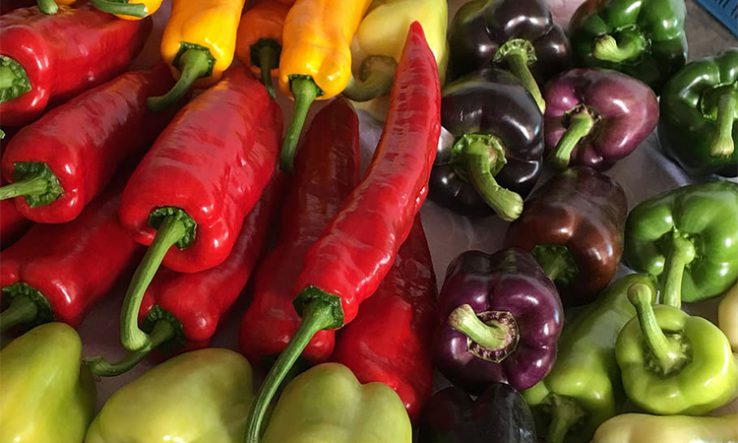
Vegetables from glasshouse trials help to meet ‘massively increased’ demand at foodbanks
Agricultural scientists at Western Sydney University have donated more than 58 tonnes of fruit and vegetables from glasshouse crop research trials to food relief charities supporting vulnerable people during the Covid-19 crisis.
The university’s national vegetable protected cropping centre at its Hawkesbury campus, north-west of Sydney, has donated fresh produce to foodbanks operating in New South Wales and the Australian Capital Territory.
The vegetables were grown as part of research trials to improve commercial horticulture production and to test new crop varieties of produce including eggplant, capsicum and cucumber.
WSU plant physiologist Zhonghua Chen said the research projects also involved testing the use of smart glass films to cut greenhouse cooling costs, and indoor crop pollination using stingless bees that are endemic to Australia.
Gerry Anderson, chief executive of Foodbank NSW and ACT, said that demand for fresh vegetables had “increased massively” in response to the impacts of Covid-19. However, supplies to the food relief charity have dropped by 25 per cent because “demand is so great in the supermarkets”.
“This means that the productive capability of Western Sydney University’s experimental glasshouse trials is of even greater benefit to us given the extraordinary effects of rising unemployment, the effects of summer’s fires and droughts on food prices, and the impacts from Covid-19 on home food consumption,” he said.